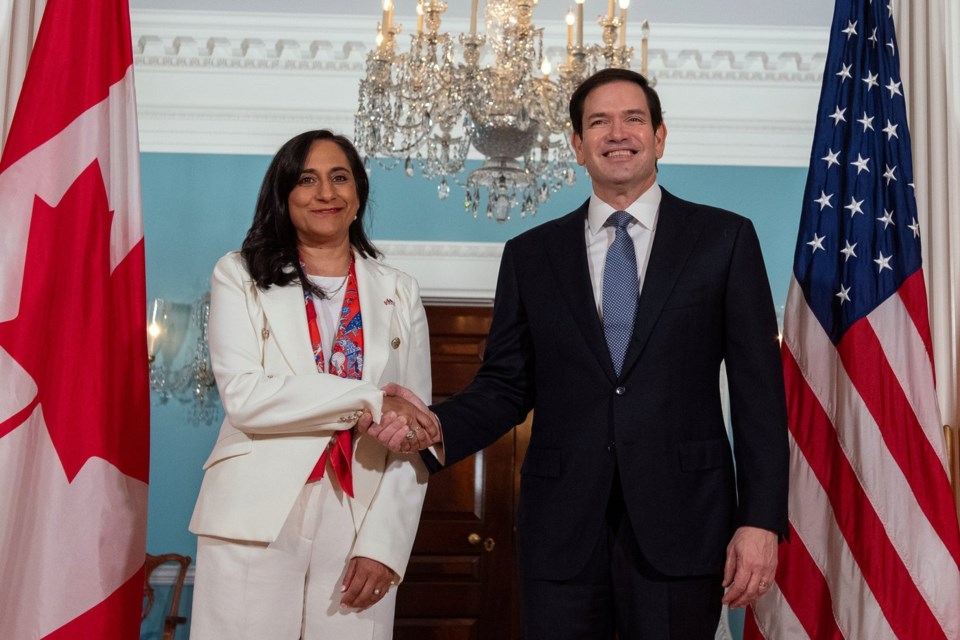Niagara-on-the-Lake, Ontario — Canada’s Foreign Affairs Minister Anita Anand opened the Group of Seven (G7) Foreign Ministers’ Meeting today in Niagara-on-the-Lake, emphasizing the urgent need for continued global collaboration to address shared security, economic, and humanitarian challenges amid shifting geopolitical tensions.
“Meeting global challenges requires global partnerships,” Anand said in her opening remarks to foreign ministers from the G7 countries — Canada, France, Germany, Italy, Japan, the United Kingdom, and the United States, along with representatives from the European Union. The two-day meeting, held under Canada’s G7 presidency, will focus on reinforcing cooperation in a world grappling with instability, protectionist trade policies, and ongoing conflicts.
Anand’s message of multilateralism and unity comes at a critical moment, as global diplomacy faces strain under the “America First” trade policies of U.S. President Donald Trump, who has withdrawn support for several international agreements and imposed tariffs on allied nations.
“The beauty of the G7 is that it allows multilateralism to do its work,” Anand noted, underscoring the importance of maintaining dialogue among the world’s major democracies despite differing national agendas.
Global Priorities on the Table
The discussions will tackle a range of pressing global issues, including:
- Russia’s ongoing war in Ukraine, where ministers hope to finalize a unified statement reaffirming support for Ukraine’s sovereignty.
- Middle East stability, including the fragile ceasefire in Gaza. Anand said she and U.S. Secretary of State Marco Rubio share agreement that Hamas must disarm and that humanitarian aid and Gaza reconstruction are top priorities.
- China’s growing dominance in critical minerals and maritime trade, where Canada continues to advocate for stronger cooperation to protect global supply chains.
- Energy security and Russia’s “shadow fleet” of oil tankers, following progress on a Canadian-led task force that has already led to hundreds of sanctions.
Anand also extended invitations to foreign ministers from Australia, Brazil, India, Mexico, Saudi Arabia, South Africa, South Korea, and Ukraine, broadening the dialogue to include perspectives from key global partners.
A Complex Diplomatic Landscape
The G7 meeting takes place amid uncertainty in U.S. foreign policy. Trump’s administration recently suspended trade talks with Canada after a controversial Ontario television ad referenced former U.S. President Ronald Reagan’s comments on tariffs. At the same time, Trump’s team has been divided on how strongly to support Ukraine and how firmly to address China’s trade policies.
“How do you build collective security when your most powerful member sees economic policy through a narrow nationalist lens?” asked Fen Osler Hampson, a professor of international affairs at Carleton University, noting that the G7 remains relevant by focusing on practical cooperation where interests align.
Despite differing national agendas, Hampson said the meeting demonstrates that democracies continue to find common ground even in difficult times.
Canada’s Leadership on the World Stage
As Canada concludes its G7 presidency, Anand reiterated the country’s commitment to constructive diplomacy, economic security, and the defense of democratic values.
“Canada believes in the power of cooperation. Through partnerships, persistence, and principled leadership, we can help shape a more stable, just, and sustainable world,” Anand said.
The two-day G7 Foreign Ministers’ Meeting continues through Wednesday in Niagara-on-the-Lake.

